My Chemical Romance (MCR) is, perhaps, one of today's most loved and hated rock groups.
The band's 2006 platinum-selling album The Black Parade, which spawned a tour of the same name, elicites a bizarre mixture of accolades and abuse. In a poll conducted by the UK's biggest weekly music magazine, Kerrang, MCR won Best Band and Best Album categories. The group, however, also received a drubbing, winning (if that can be said) the same poll's awards for Worst Band and Worst Album.
The band also bagged the Best Thing about 2006 and Worst Thing about 2006 categories.
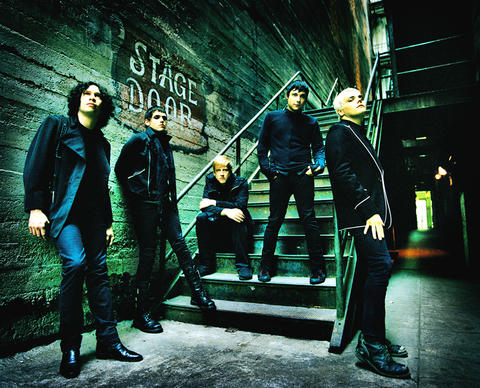
As of press time, the band, which was formed in 2001, has sold roughly 3,500 of the 5,000 seats available for its Sunday one-off gig at National Taiwan University Athletic Stadium.
Compare this to Linkin Park two months earlier, a rock group that sold most of its 38,000 tickets a few weeks before the show. It would seem that concertgoers in Taiwan share the same ambiguity towards MCR as respondents to the poll conducted by Kerrang.
"My Chemical Romance is not as well known in Taiwan as Linkin Park … [because] it's louder," said Louisa Lee, a DJ with ICRT and host of Weekend Buzz. "It caters to a younger crowd - people who can't afford to go concerts," she said referring to the teenagers who treat the quintet's members - singer Gerard Way and his brother, bass guitarist Mikey, rhythm guitarist Frank Iero, lead guitarist Ray Toro and drummer Bob Bryar - like gods.
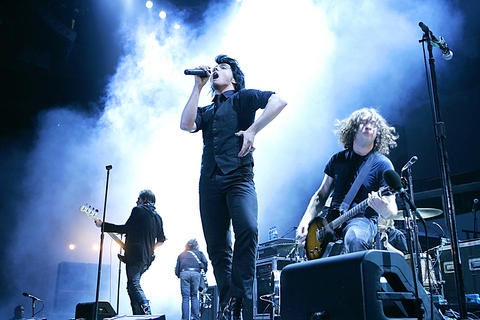
Where Linkin Park remained at the top of local charts for international pop acts, MCR has had problems making inroads into the island's music scene. The Black Parade sold 6,000 copies here.
That teenagers adore the band may seem odd considering that MCR's musical influences are a combination of 1970s concept music and 1980s glam rock - genres that were reaching the peak of their popularity before most of MCR's audience was born.
Rolling Stone Magazine wrote in a review of The Black Parade that "the [album's] opening fanfare, The End, blows up like an outtake from Alice Cooper's Billion Dollar Babies, with glam-Godzilla guitars and spook-choir hurrahs. Dead! is a sleek, bleak bruiser, like Queen's Keep Yourself Alive … ." The album came highly recommended.
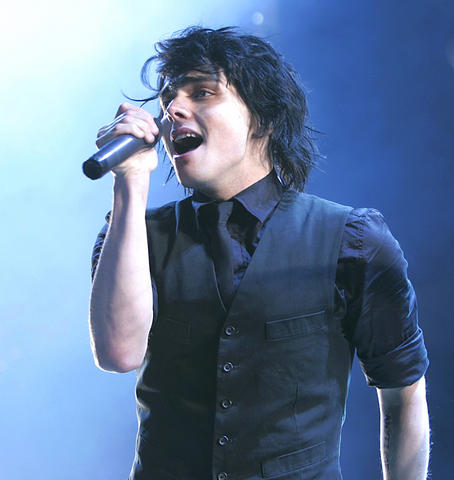
Though the group's musical influences are firmly planted in the 1970s and 1980s, MCR's angst is pure post-Sept. 11. Front man Gerard Way's first song written for the group, Skylines and Turnstiles, was based on his experiences of watching the twin towers crumble in New York City. Rubble and dust have informed his Gothic sensibility and nihilistic lyrics of death ever since.
The Black Parade is a concept album a la Queen, whose story bears a striking similarity to Pink Floyd's The Wall, in which the protagonist runs through a gamut of childhood and adulthood traumas - reflected in the show's larger than life sets (featuring a warped castle) and Gothic costume designs. It has already been performed at more than 100 coliseums and concert halls across the globe.
My Chemical Romance's Asian leg of its international tour also includes dates in South Korea, the Philippines, Hong Kong and Indonesia.
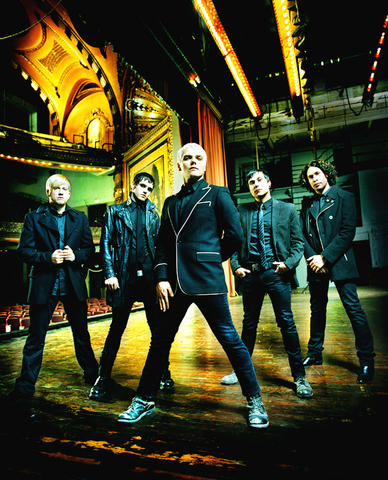
Daphne Lee (李志揚), a spokesperson for Warner Music Taiwan, said the band won't be staging its rock-opera for at the Taipei gig. But audiences shouldn't be disappointed because MCR is going to draw upon the band's entire repertoire of tunes. As such, expect the music to range from its earlier emo-inspired pop tracks from 2002's album I Brought You My Bullets, You Brought Me Your Love to the later obsessions with mortality found on The Black Parade.
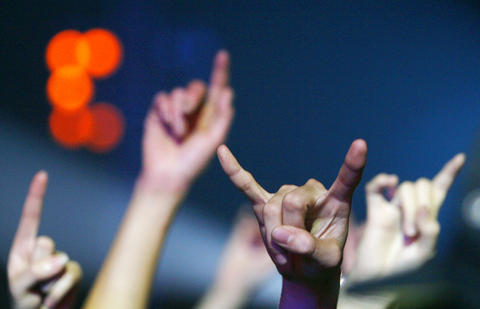

The primaries for this year’s nine-in-one local elections in November began early in this election cycle, starting last autumn. The local press has been full of tales of intrigue, betrayal, infighting and drama going back to the summer of 2024. This is not widely covered in the English-language press, and the nine-in-one elections are not well understood. The nine-in-one elections refer to the nine levels of local governments that go to the ballot, from the neighborhood and village borough chief level on up to the city mayor and county commissioner level. The main focus is on the 22 special municipality

The People’s Republic of China (PRC) invaded Vietnam in 1979, following a year of increasingly tense relations between the two states. Beijing viewed Vietnam’s close relations with Soviet Russia as a threat. One of the pretexts it used was the alleged mistreatment of the ethnic Chinese in Vietnam. Tension between the ethnic Chinese and governments in Vietnam had been ongoing for decades. The French used to play off the Vietnamese against the Chinese as a divide-and-rule strategy. The Saigon government in 1956 compelled all Vietnam-born Chinese to adopt Vietnamese citizenship. It also banned them from 11 trades they had previously

Hsu Pu-liao (許不了) never lived to see the premiere of his most successful film, The Clown and the Swan (小丑與天鵝, 1985). The movie, which starred Hsu, the “Taiwanese Charlie Chaplin,” outgrossed Jackie Chan’s Heart of Dragon (龍的心), earning NT$9.2 million at the local box office. Forty years after its premiere, the film has become the Taiwan Film and Audiovisual Institute’s (TFAI) 100th restoration. “It is the only one of Hsu’s films whose original negative survived,” says director Kevin Chu (朱延平), one of Taiwan’s most commercially successful

Jan. 12 to Jan. 18 At the start of an Indigenous heritage tour of Beitou District (北投) in Taipei, I was handed a sheet of paper titled Ritual Song for the Various Peoples of Tamsui (淡水各社祭祀歌). The lyrics were in Chinese with no literal meaning, accompanied by romanized pronunciation that sounded closer to Hoklo (commonly known as Taiwanese) than any Indigenous language. The translation explained that the song offered food and drink to one’s ancestors and wished for a bountiful harvest and deer hunting season. The program moved through sites related to the Ketagalan, a collective term for the